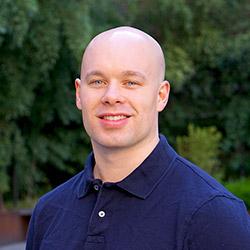Biostatistics graduate Alex Paynter’s (MS, ’19) master’s thesis on estimating microbial richness was recently accepted for publication by the Journal of Applied Statistics.

"Alex developed four novel methods for this important problem," says Paynter’s advisor Amy Willis, an assistant professor of biostatistics in the University of Washington School of Public Health and the paper’s co-author. "Alex's creativity and dedication culminated in an outstanding thesis, and its publication is a fantastic achievement."
Paynter was recognized as the Outstanding MS Student for Biostatistics at the 2019 School of Public Health Excellence Awards.
Microbial diversity is important because it is often an indicator of ecosystem health. Paynter’s thesis examined how to estimate the number of species in a population when there are species missing from a sample. In addition to the methods development, the paper estimated the strain-level microbial diversity of Lake Champlain over three consecutive years, as well as global human species-level microbial richness.
“It's an interesting problem that has evaded a fully satisfying solution for over a century,” notes Willis. “We can only count how many species we observe, but we never know how many are truly out there. However, if we observe a lot of species infrequently in our sample (say only once or twice) then that suggests that there might be a lot of species that we observed zero times, and that we undercounted how many species exist.”
Paynter’s method uses a quantitative approach to estimating the total number of species. His work looked at incorporating data from repeated observations into estimation, a process that is now feasible thanks to the availability of modern, high throughput sequencing data. "The method uses the statistical machine learning techniques of regularization and cross validation in this atypical setting," says Willis.
The method’s software is available under open license.
Deb Nelson, Biostatistics communications and event manager